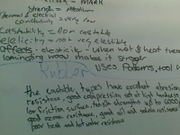Knowing the Learner
|
Some students enter tertiary study without strong reading, writing, speaking, listening and numeracy skills. This can impact on their success studying with us and transitioning smoothly to higher level programmes or employment. What assumptions do you make about your learners' reading, writing and numeracy skills? How will these skills affect learners' ability to manage the course material and tasks? |
In most certificate programmes, learners come with a wide range of literacy and numeracy skills.
There are a variety of approaches you can use to assess or get to know your learners early in the programme, so you know who may need additional support.
Which of these do you use?
- 1:1 interviews
- Observing how students cope with contextualised literacy and numeracy tasks and assessments
- Using the Literacy and Numeracy for Adults Assessment Tool
- Conducting focus or discussion groups
Getting to know your students' literacy and numeracy skills is part of a wider process of identifying students' needs and factors for success. An Ako Aotearoa project at Weltec illustrates this. Profiling your student
The main purpose of initial literacy and numeracy assessment should be to support learning
|
Using the Assessment Tool at Otago Polytechnic
All students on certificate level programmes at Otago Polytechnic (and other tertiary institutions in New Zealand) are required to use at least one of the Literacy and Numeracy for Adults Assessment Tools. If you are not familiar with the Assessment Tool, work through the background information for Educators here. This gives detailed information about how to set up assessments and analyse reports.
- Profiles of students at steps of Reading Progression Shows what students can typically do in terms of reading, and relates this to the 'step' they were assessed at by the Reading Assessment Tool.
- Student profiles at steps of Numeracy Progressions Shows what students can typically do in terms of numeracy, and relates this to the 'step' they were assessed at by the Numeracy Assessment Tool.
|
Assessment should follow good practice principles. What does this involve?
|
Examples of contextualised tasks to gather evidence about your students' literacy and numeracy skills, early in the programme
- Reading activity/formative assessment task used on the Basic Mechanical Engineering Trades Skills (BMETS) programme. The assessment required students to find their way around a course theory booklet on safe welding. Students had to use skimming and scanning skills to locate the relevant information to answer the questions. This activity was used at the beginning of the programme. It gave students a reality check too - that reading was an important skill they would need on the programme. The activity was followed up with a class debrief in which the lecturer went over the correct answers and how to locate these in the text reading assessment task.
- Writing activity to get a snapshot of students' skills
|
These resources contain some other suggestions for getting to know learners
|

